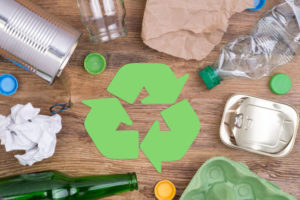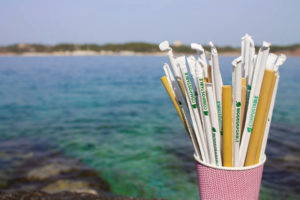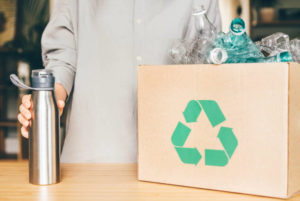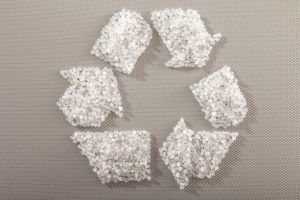19/07/21
As the environmental degradation caused by synthetic materials has reached dangerous levels, more and more of us are questioning the use of traditional packaging. Indeed, the packaging is not always recycled and takes a long time to degrade naturally in the environment. Unlike eco-friendly packaging, conventional packaging has a proven negative impact on ecosystems and on human health. To add, these environmental concerns increasingly affect consumers who demand ecological packaging. Many consumers today say that important factors including recyclability and biodegradability are key points in their purchasing decisions. Here are four popular sustainable packaging trends of 2021 to look for when purchasing a packaged product. Sustainable packaging helps make the earth a healthier place for ecosystems and for humans.
Bioplastics
Bioplastics are plastic materials produced from renewable biomass sources, such as vegetable fats and oils, corn starch, straw, woodchips, sawdust, recycled food waste, etc. Major producers that are known to use bioplastics are NatureWorks, Total Corbion, Danimer Scientific, Novamont, Mitsubishi Chemicals, and many more. Although it is a new trend, you should expect to see the use of bioplastics in cosmetic packaging in the near future, as biodegradable cosmetics are being popularised. The advantages of using bioplastics in packaging are the reduced use of fossil fuel resources, a smaller carbon footprint, and a faster rate of decomposition. Bioplastic is also less toxic and does not contain BPA, a hormone disruptor that is often found in traditional plastics. BPA is terrible for the environment and growing ecosystems. Bioplastics can hopefully solve plastic packaging problems in the future and help our environment.

Disposable refills
The purchase of a refillable product creates 70% less CO2 emissions, uses 60% less energy and 45% less water than if you bought a brand new bottle. Disposable refill packaging is a very popular and very great way to be sustainable. To make it even better, you can find disposable refills for just about any household or everyday product. There are countless refill websites online that send your refills in biodegradable packaging. Most refill pouches for cleaning or hygiene items are recyclable or biodegradable like toothpaste tablets and dish soap tablets, although it is recommended to make sure the refill is not waste when buying the product. An example of a disposable refill that includes waste is Kikkoman soy sauce refills. The container is a reusable glass jar, but the refill bottle is made of plastic waste. So it is important to be aware that sometimes refills are not sustainable. However, it is very good to practice this method of sustainability when possible.

Antimicrobial packaging
Antimicrobial packaging was designed to reduce product waste as a method of sustainability. It is generally expensive and requires a lot of design changes since it is fairly new but looking into the future, it could be a very sustainable way to reduce product waste. This technology uses an antimicrobial film using clay to keep produce and food fresh for longer, thus extending its shelf life without the use of harsh chemicals or preservatives. This idea is becoming very popular in the science and sustainability world and is something to look forward to.
Recycled resin packaging
Post-consumer recycled resin is a material made from recycled plastic, such as water and beverage bottles and other packaging. It is a more sustainable source for making packaging films, containers, sheets, and many of the products that would otherwise be developed with new plastic resin. What makes post-consumer resin a powerful product is that it has already been processed from fossil fuels to plastic, meaning there is no further impact on the environment, so post-consumer recycled resin can be used again and again. This has long-lasting environmental benefits. You might have also noticed it in your everyday life when you read packages that say “Made from recycled materials” on fabrics and plastics. It is very popular in cosmetic and water bottle packaging and is very sustainable.
Conclusion
In 2021 it can be very discouraging to hear about all of the environmental problems of our generation. But by using sustainable packaging trends like bioplastics, disposable refills, antimicrobial packaging, and PCR resin packaging, we can help our ecosystems and environment become better.
